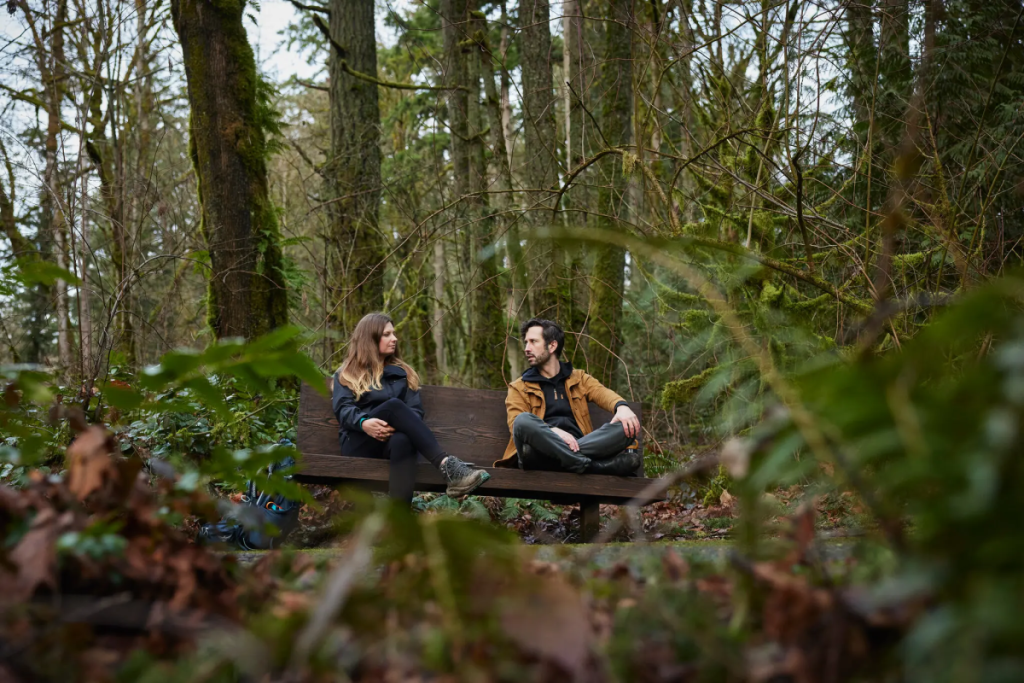Ecotherapy is nothing new. For example, I know that I can sit inside, working on my computer for just so long. At some point—and I never know when that will be—I have to get up and go outside, if only to pull weeds or run my hands through the dirt. Even without my smart watch telling me “It’s time to stand up,” I’m aware that both my body and mind need what I can gain by walking through my backyard and breathing some fresh air.
Perhaps a better example is something that occurred many years ago when my husband’s older daughter died. We were devastated, of course, and to find solace, we ended up going out to Little Arkansas on the Blanco River in Wimberley. There amid the rocks and oak trees and water trickling from hidden springs, we found a measure of peace. Time may heal wounds, but nature does it better.
Rewind back to 1992 when cultural historian Theodore Roszak published The Voice of the Earth. That’s when he coined the word “ecopsychology,” playing on the earlier term “psychoecology,” used first in the sixties by journalist and educator Robert Greenway. As Roszak explained in “The Nature of Sanity,” which appeared in Psychology Today in 1996, “If our culture is out of balance with nature, everything about our lives is affected; family, workplace, school, community—all take on a crazy shape. For this reason, ecopsychology does not seek to create new categories of pathology, but to show how our ecological disconnection plays into all existing ones. For example, the DSM defines ‘separation anxiety disorder’ as ‘excessive anxiety concerning separation from home and from those to whom the individual is attached.’ But no separation is more pervasive in this Age of Anxiety than our disconnection from the natural world.”
He further argued that “[s]uch an intimate connection with the earth means taking our evolutionary heritage seriously and putting it in an ecological framework. Ecopsychology reinforces insights from naturalists like E. O. Wilson, who suggests that we possess ‘an innately emotional affiliation with all living organisms’—biophilia—that inclines us toward fostering biodiversity.”
More recently, The New York Times carried this piece on the mind-healing qualities of nature.
– Susan Hanson, Editor, The Loop
Therapists Trade the Couch for the Great Outdoors
Mental health practitioners are hiking, camping and braving the elements with their clients — all in an effort to help them connect with the Earth, and with themselves.
Chase Brockett, right, of Portland, Ore., began scheduling outdoor counseling sessions with the therapist Aimee Frazier to address his anxiety and depression and saw her for about a year and a half. Leah Nash for The New York Times.
Feb. 5, 2024
Sometimes a pine cone is just a pine cone.
But on a January day, the rough edges of the cone — and the lone feather sticking out of it — meant something different to Rachel Oppenheimer, 25, a counselor at the Chesapeake Mental Health Collaborative in Towson, Md.
“Growing up, I had some challenges,” Ms. Oppenheimer said, referring to her prickly teenage past, “some struggles with managing my emotions.”
But her grandmother, who died four years ago, was soft like the feather, and gave her unconditional love that reminded Ms. Oppenheimer how important it was to treat herself with “soothing tenderness,” especially when she became self-critical.
Ms. Oppenheimer and her clinical supervisor, Heidi Schreiber-Pan, were visiting Talmar, a nonprofit farm that offers therapeutic programs and vocational training — a short drive from the busy road and nondescript strip malls near their office. At the farm, the only sounds were a burbling stream, trilling birds and several inches of snow crunching beneath their feet. It was the perfect location to teach Ms. Oppenheimer therapeutic techniques that make use of the natural world.
Continue reading here.

